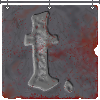This article was written by the god
Shadowfax,
and was posted on May 11, 2009. It was last updated on July 25, 2011.
This article explains the various stealth skills, as well as how to use them effectively. Stealth is an important aspect of the thief class, allowing you to see the unseen and avoid being seen yourself.
BACK - Alter Aeon Article Index
This article explains the various stealth skills, as well as how to use them effectively. Stealth is an important aspect of the thief class, allowing you to see the unseen and avoid being seen yourself.
Searching
In order to one day learn the secrets of stealth, you must first learn how
to detect that which is hidden. The stealth skill group begins with the
search skill. It is a low-level thief skill, but you can attempt to search
untrained. Searching allows you find things that would otherwise be
hidden, such as mobs, doors, exits or objects. To use the skill and search
a room, simply type 'search'. Searching requires time and costs movement.
It is possible to find invisible creatures with the search skill, but you
still will not be able to see them - you just know that they are there.
Sneaking
Sneak is a low-level thief skill that allows one to stealthily move from
room to room. Normally, players and mobs notice immediately when you enter
a room (you see a message such as "Dentin has arrived."). Sneaking
characters are trying to enter a room without being noticed.
You can move a direction sneakily by using the 'sneak' command followed by the direction you wanted to go. Alternatively, you can toggle sneak mode on and off using the 'sneak' command without any arguments, and your character will try to sneak whenever you go. The 'sneaking' command will show whether or not you are sneaking, and how well you think you are doing.
It is impossible to sneak while wearing or having in your inventory a piece of equipment that hums. If you try to sneak while in the possession of such equipment, you will be warned and the 'sneak' command will fail. Another issue are objects that glow or shed light; these can also degrade your ability to sneak. If you are carrying too many light sources, you may not be able to sneak at all. Note that moving while sneaking costs more movement that normal.
Successful sneaking is dependent primarily on a character's dexterity. Whenever a character with sneak mode on enters a room, all other occupants of the room make a "spot check". Those that succeed will see the sneaky character enter normally. Those that fail will not notice the sneaker enter the room (players will never see any message to limit spam.)
This is most useful against aggressive monsters, and a thief well-trained in sneaking may be able to walk right past them without having to fight. Even so, it is best not to linger: mobs will continue to make spot checks each round you remain in a room. You can also break the sneak by performing an obvious action such as casting a spell. You cannot sneak past guarding mobs - they are too alert to let you just walk past them.
Unfortunately, the sneak skill cannot be improved with use. You must train it to use it, and if you do not train it your skill level will never increase.
You can move a direction sneakily by using the 'sneak' command followed by the direction you wanted to go. Alternatively, you can toggle sneak mode on and off using the 'sneak' command without any arguments, and your character will try to sneak whenever you go. The 'sneaking' command will show whether or not you are sneaking, and how well you think you are doing.
It is impossible to sneak while wearing or having in your inventory a piece of equipment that hums. If you try to sneak while in the possession of such equipment, you will be warned and the 'sneak' command will fail. Another issue are objects that glow or shed light; these can also degrade your ability to sneak. If you are carrying too many light sources, you may not be able to sneak at all. Note that moving while sneaking costs more movement that normal.
Successful sneaking is dependent primarily on a character's dexterity. Whenever a character with sneak mode on enters a room, all other occupants of the room make a "spot check". Those that succeed will see the sneaky character enter normally. Those that fail will not notice the sneaker enter the room (players will never see any message to limit spam.)
This is most useful against aggressive monsters, and a thief well-trained in sneaking may be able to walk right past them without having to fight. Even so, it is best not to linger: mobs will continue to make spot checks each round you remain in a room. You can also break the sneak by performing an obvious action such as casting a spell. You cannot sneak past guarding mobs - they are too alert to let you just walk past them.
Unfortunately, the sneak skill cannot be improved with use. You must train it to use it, and if you do not train it your skill level will never increase.
Listening
This skill allows a thief to listen for hidden or invisible enemies
in a room or nearby room. Some creatures are naturally louder than others and are
easier to detect using this method. A giant ogre plodding down a corridor would
be a cinch to hear, however, a ghost silently floating down the same corridor would
nearly undetectable.
Listen can also be used to determine whether there are objects (or mobs) inside of a container. Humming objects are always heard.
Listen cannot be attempted untrained, but it does improve with use.
Listen can also be used to determine whether there are objects (or mobs) inside of a container. Humming objects are always heard.
Listen cannot be attempted untrained, but it does improve with use.
Hiding
Hide is a mid-level thief skill allows one to remain in a room without
being seen. Using the 'hide' command, your character attempts to find a
good hiding place in the room. Players and mobs that enter a room won't
see a hidden character there and may never notice a hider unless they begin
actively searching the room.
It is impossible to hide while wearing or having in your inventory a piece of equipment that hums. You also cannot emit too much light compared to your surroundings. Trying to hide while using a light source during the day may work, but it would certainly give you away at night. Ambient light can drown out your own lights and make this less of a factor.
You can stop hiding with the 'unhide' command. Note that most non-metagame commands will cause you to automatically unhide, such wearing or removing equipment, giving objects to other players or saying something. If you are good at hiding, your character will realize when a command will cause you to unhide and will warn you of such - otherwise, you will accidently unhide yourself. Enemies can try to lure you out of hiding using the search skill.
To help prevent you from accidentally unhiding yourself, you can use the 'autounhide' command to stop you before you do questionable actions. This command is very useful in high-risk situations, where accidentally exposing your hiding place would result in certain death.
You can improve your hide skill with use, and you must know search before you can learn hide from a teacher.
It is impossible to hide while wearing or having in your inventory a piece of equipment that hums. You also cannot emit too much light compared to your surroundings. Trying to hide while using a light source during the day may work, but it would certainly give you away at night. Ambient light can drown out your own lights and make this less of a factor.
You can stop hiding with the 'unhide' command. Note that most non-metagame commands will cause you to automatically unhide, such wearing or removing equipment, giving objects to other players or saying something. If you are good at hiding, your character will realize when a command will cause you to unhide and will warn you of such - otherwise, you will accidently unhide yourself. Enemies can try to lure you out of hiding using the search skill.
To help prevent you from accidentally unhiding yourself, you can use the 'autounhide' command to stop you before you do questionable actions. This command is very useful in high-risk situations, where accidentally exposing your hiding place would result in certain death.
You can improve your hide skill with use, and you must know search before you can learn hide from a teacher.
Stealthy Movement
This skill allows you to remain hidden while using the 'sneak' command to
move from room to room. You must either be hiding or have sneak enabled
to use the 'sneak' command to move from room to room. Without stealthy
movement, you will automatically unhide when you leave a room.
Stealthy movement is a mid-level thief skill that is dependent on the hide skill. It can be improved with use. All other rules and restrictions that apply to sneak and hide apply also to stealthy movement.
Stealthy movement is a mid-level thief skill that is dependent on the hide skill. It can be improved with use. All other rules and restrictions that apply to sneak and hide apply also to stealthy movement.
Scouting
Scouting is a high-level skill that allows a thief to see a room as if he were actually there with
minimal risk. This is useful to spy on aggressive guards and monsters or
checking on a door or other object's status in the room.
Stealthy Backstabbing Strategy
Using sneak and hide (or both with stealthy movement) can help with your
backstabs (or shadow strikes). You can sneak into a room containing your target, and
backstab it before it notices you. Sneaking helps tremendously with
enemies that also backstab, allowing you sneak in and get in an attack
first, thus thwarting any backstab attempt. You can also hide in a room
and wait for wandering mobs to enter and then backstab them.
Stealthy movement combines the best of both worlds, allowing one to sneak into a room, remain hidden and backstab from your hiding place. While hiding before attempting a backstab doesn't actually improve the probability of success, hiding will conceal you during the backstab's setup lag. Backstabbing from being hidden does do a bit more damage.
Stealthy movement combines the best of both worlds, allowing one to sneak into a room, remain hidden and backstab from your hiding place. While hiding before attempting a backstab doesn't actually improve the probability of success, hiding will conceal you during the backstab's setup lag. Backstabbing from being hidden does do a bit more damage.
Stealth Checks
Whenever a character uses sneak or hide, the strength of the skill is
calculated from a number of factors, including thief level, skill level,
dexterity, and any bonuses granted from potions, spells, or equipment.
Equipment with the SNEAK or HIDE effects will add to (or subtract from, if
negative) the final skill amount when making stealth calculations.
Each THIEF_SKILL_LEVEL effect adds (or subtracts) to both.
The spot check for the target depends on the character's highest level and their wisdom, as well as detection spells such as 'sense life' or 'detect undead'. In order for a character to notice a sneaker or discover a hidden player, the spot check must roll higher than the sneak or hide value. Neither of these rolls or values are visible to players.
Whenever a search is conducted, dice are rolled, taking the searcher's thief level, skill level and intelligence into account. The result is checked against the strength of the hide (+ equipment or spell modifiers) of everything in the room, whether it be an object, door or character. If the search result is higher, than the target uncovered and unhidden. If not, nothing happens. Players take a penalty to their hide while asleep; this can be overcome using the 'show hide' command as a reference.
Searching always reveals hidden exits, though some doors cannot be detected using search. There are also special creatures and objects that can never be found by searching.
The spot check for the target depends on the character's highest level and their wisdom, as well as detection spells such as 'sense life' or 'detect undead'. In order for a character to notice a sneaker or discover a hidden player, the spot check must roll higher than the sneak or hide value. Neither of these rolls or values are visible to players.
Whenever a search is conducted, dice are rolled, taking the searcher's thief level, skill level and intelligence into account. The result is checked against the strength of the hide (+ equipment or spell modifiers) of everything in the room, whether it be an object, door or character. If the search result is higher, than the target uncovered and unhidden. If not, nothing happens. Players take a penalty to their hide while asleep; this can be overcome using the 'show hide' command as a reference.
Searching always reveals hidden exits, though some doors cannot be detected using search. There are also special creatures and objects that can never be found by searching.
Spells and Stealth
Some spells can help you improve your chances with stealth checks, while
others are designed to defeat stealthy characters.
'sense life' will allow you to detect any living creatures in a room, even hidden (or invisible) ones. The sense life spell grants you a bonus to your spot and search checks. You will find it difficult to hide from mobs with the sense life spell active. Because of their heightened senses, they will smell you in the room and will begin searching to try to find you.
Usually, because 'sanctuary' makes you glow with a bright light, it can be difficult to be stealthy with this spell active. The 'darkness' spell or 'cloak of darkness' shadow skill can cancel out the glowing aura of the sanctuary spell, allowing you to use stealth with both spells active.
The alarm produced by the 'chimes' spell will always detect both sneaking and invisible characters.
The vibrations produced by the 'squeaky floors' spell will alert you to characters entering a room, regardless of the sneak skill. Squeaky floors will not detect flying characters, however.
You cannot hide while effected by 'faerie fire'. The 'fairy fog' spell can also be used to reveal hidden characters.
Hidden characters cannot escape area effect spells. They will be instantly revealed.
Hiding undead can be seen with the 'detect undead' spell.
As would be expected, characters who are affected by 'blindness' take a severe penalty to their spot and search checks.
Note that 'detect invisibility' does not aid you in detecting opponents using stealth. It only allows you see characters affected by 'invisibility'. Invisibility does not grant you any special bonus to your sneak or hide registers. If you sneak while invisible, an opponent with detect invisibility will still have to make a successful spot check to see you - likewise, if you hide while invisible, someone with detect invisibility will still have to use the search skill to try and find you.
'sense life' will allow you to detect any living creatures in a room, even hidden (or invisible) ones. The sense life spell grants you a bonus to your spot and search checks. You will find it difficult to hide from mobs with the sense life spell active. Because of their heightened senses, they will smell you in the room and will begin searching to try to find you.
Usually, because 'sanctuary' makes you glow with a bright light, it can be difficult to be stealthy with this spell active. The 'darkness' spell or 'cloak of darkness' shadow skill can cancel out the glowing aura of the sanctuary spell, allowing you to use stealth with both spells active.
The alarm produced by the 'chimes' spell will always detect both sneaking and invisible characters.
The vibrations produced by the 'squeaky floors' spell will alert you to characters entering a room, regardless of the sneak skill. Squeaky floors will not detect flying characters, however.
You cannot hide while effected by 'faerie fire'. The 'fairy fog' spell can also be used to reveal hidden characters.
Hidden characters cannot escape area effect spells. They will be instantly revealed.
Hiding undead can be seen with the 'detect undead' spell.
As would be expected, characters who are affected by 'blindness' take a severe penalty to their spot and search checks.
Note that 'detect invisibility' does not aid you in detecting opponents using stealth. It only allows you see characters affected by 'invisibility'. Invisibility does not grant you any special bonus to your sneak or hide registers. If you sneak while invisible, an opponent with detect invisibility will still have to make a successful spot check to see you - likewise, if you hide while invisible, someone with detect invisibility will still have to use the search skill to try and find you.
BACK - Alter Aeon Article Index










